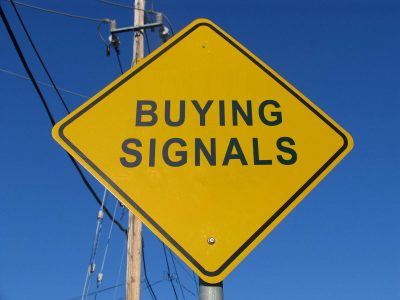Read the Buying Signals!
You’ve waited for this day: the anticipated big meeting with the oh-so-desirable prospective client.
Being excited, enthusiastic and energetic is understandable, and overall a great thing: your enthusiasm, your passion for, and your understanding of the prospect’s business assure them your firm can be a good potential marketing partner.
And still there are times when enthusiasm and passion might just carry you a bit too far. Keep selling after the prospect is already signaling they are going to buy, and strange as it can sound, you can lose the deal.
Seasoned sales people have seen this happen and know when to stop selling. If you are one of them, you know what I’m talking about.
It’s natural – and pretty easy – to get wrapped up in a presentation, intent on hitting ALL the reasons your prospect should want to partner with you.
Be alert to the prospect – everything from their posture and comments to sidebar conversations they are having with colleagues to files they may be pulling up (rude as that can be) as you talk. Within all this activity are signals that about their readiness to buy in.
Information on buying signals is endless, but one article to point out comes from Inside Sales Box. One of the reasons is that it includes signals arising outside the meeting – possibly even prior to the meeting. These might be frequent website visits, viewing case studies, reading white papers, and more.
In addition to body language signaling your prospects receptivity to your firm, listen closely to the implications of what they are saying. When they are asking about fees, for specifics about a service, standard turn around for a project of a certain type, or when they state their own policies for paying vendors, they are signaling interest.
Paul Reilly of Tom Reilly Training calls out a great point about the buying signals represented by the prospect asking about price:
“…The customer asks for the price. Ironically, some salespeople will confuse this request as a price objection. Salespeople mislabel these customers as price shoppers, when in fact, the customer is telling you they are interested in making a purchase. If the customer gives you this signal, begin moving toward the close. But before you ask for the business, ask the customer to validate the value of your solution. Ask the customer, “Does our solution meet your needs?” or “Are we on the right track?”
Depending on the questions your prospects are asking, they could be screaming, “Let’s do this deal!” Be alert for buying signals; your prospect is telling you they are sold.
















